#ian east
Text
Jacob Elordi characters >>>>>







#felix catton#jacob elordi#ian reynolds#rooster swinging safari#saltburn#chase hoghan#fictional characters#the sweet east#swinging safari#the very excellent mr dundee#the mortuary collection#jake matthews#2 hearts#chris gregory#euphoria#nate jacobs
73 notes
·
View notes
Text

As reciprocal smiting flares in the Middle East yet again... [Ian Sanders]
* * * *
“Into this wild Abyss/ The womb of Nature, and perhaps her grave--/ Of neither sea, nor shore, nor air, nor fire,/ But all these in their pregnant causes mixed/ Confusedly, and which thus must ever fight,/ Unless the Almighty Maker them ordain/ His dark materials to create more worlds,--/ Into this wild Abyss the wary Fiend/ Stood on the brink of Hell and looked a while,/ Pondering his voyage; for no narrow frith/ He had to cross.”
― John Milton, Paradise Lost
28 notes
·
View notes
Text

175 Hampstead Way, London NW11; 20.5.2023
In 1970 it was a squat, lived in by Linda Lewis (d. 3 May 2023), Ian Samwell, Jeff Dexter and others.
youtube
#photography#photographers on tumblr#dubmill#London#Hampstead Way#England#UK#Britain#1960s#1970s#Linda Lewis#Ian Samwell#Jeff Dexter#Jim Cregan#Cat Stevens#original photography#original photograph#walk#Gospel Oak to Mill Hill East#2023#20052023#Youtube
19 notes
·
View notes
Text

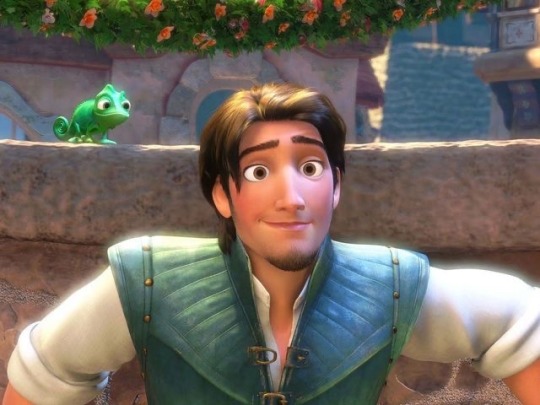
i had an epiphany….
#jacob elordi#the sweet east#flynn rider#tangled#ian reynolds#the first thing that went into my mind seeing him in this costume was oh my god he looks just like flynn!
11 notes
·
View notes
Text
As late as 326 BCE, when Alexander of Macedon led his troops into the Punjab (Figure 5.8), even the best-educated Easterners and Westerners knew almost nothing of each other's existence.
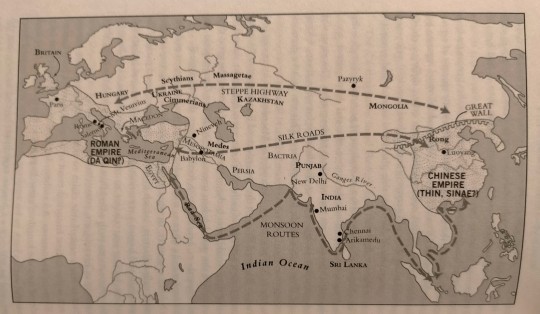
Figure 5.8. Between East and West: the late-first-millennium-BCE tissue of trade linking East and West across the Indian Ocean, Silk Roads, and steppe highway.
"Why the West Rules – For Now: The patterns of history and what they reveal about the future" - Ian Morris
#book quotes#why the west rules – for now#ian morris#nonfiction#alexander the great#alexander of macedon#troops#punjab#education#the east#the west#trade routes#indian ocean#silk road#steppe highway#roman empire#chinese empire#india
3 notes
·
View notes
Text
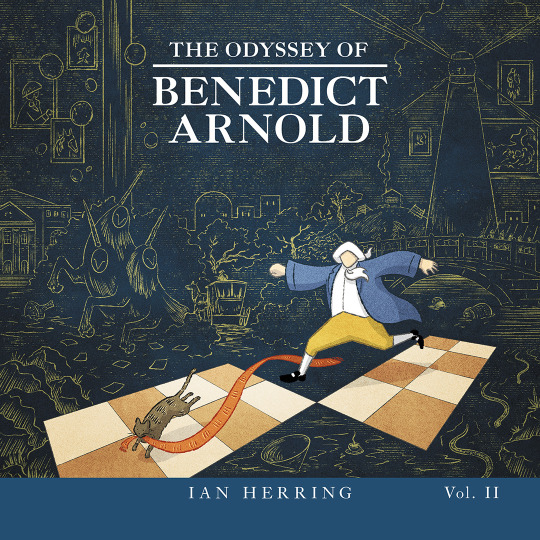

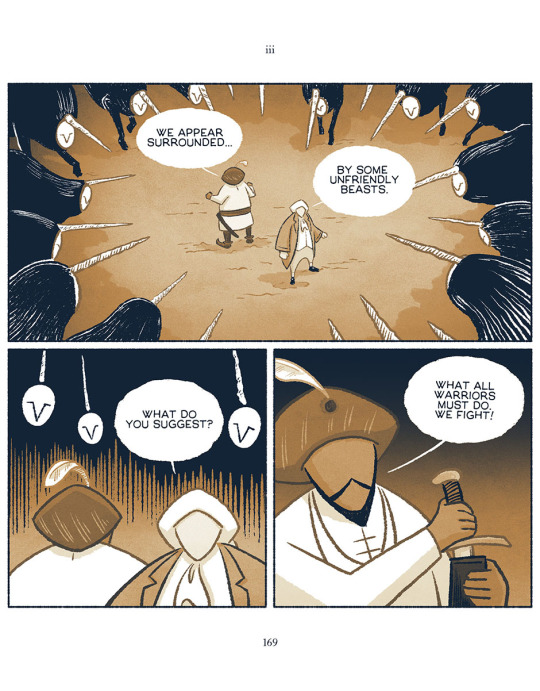

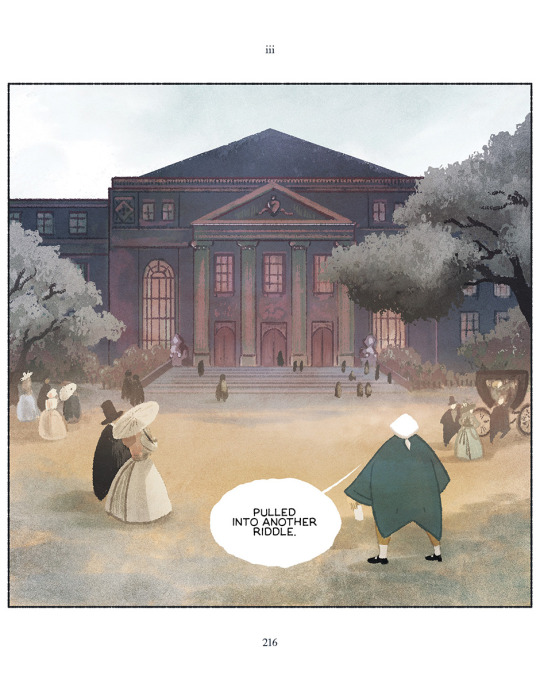
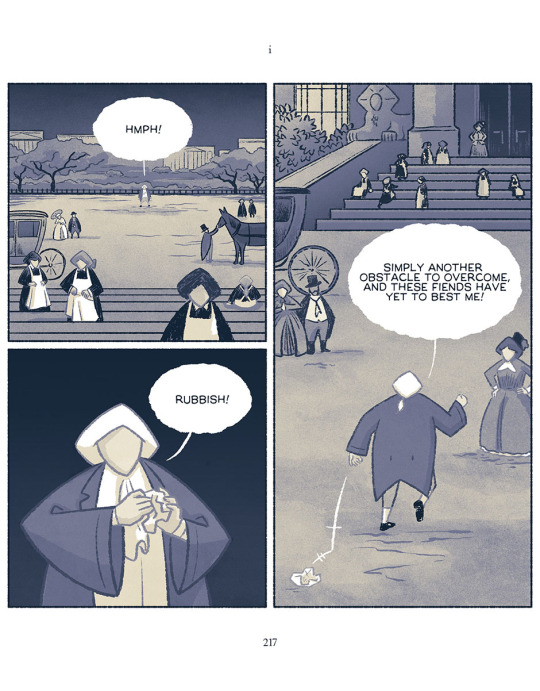
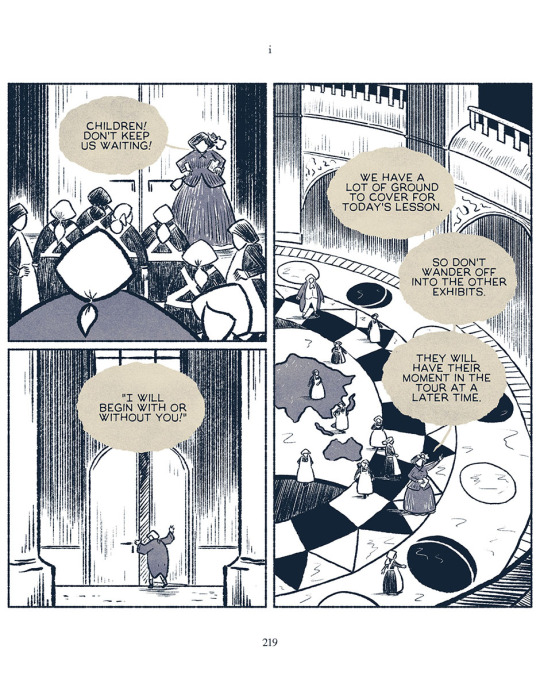
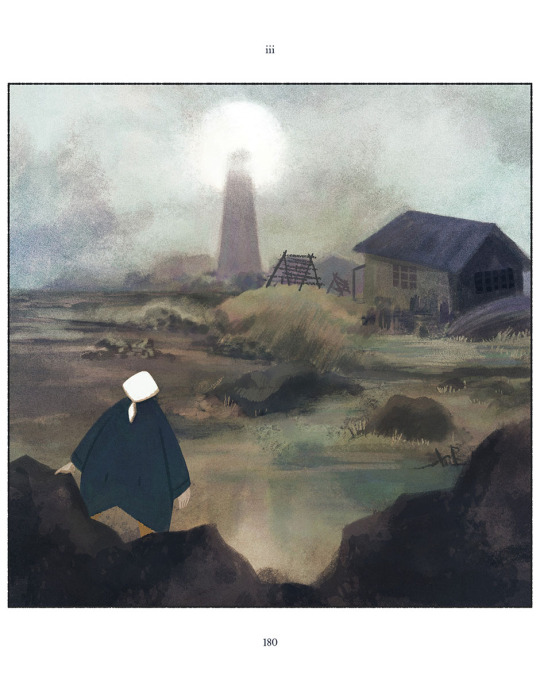
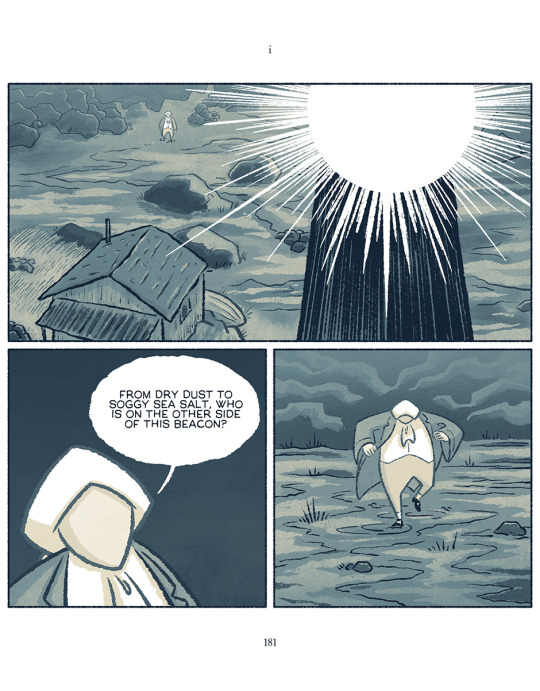

The Odyssey of Benedict Arnold: Vol. II
Available now through most online retailers, bookshop.org, Barnes & Noble, Amazon, and etc.
This is a 160 pg, 6.5 x 6.5" Print-On-Demand softcover edition continues Arnold's journey. This one contains Chapters V - VIII of the story, some extras, and a note!
Check out mongooseandson.com/store for more details and thank you for reading!
#books#comicbooks#biography#history#illustration#webcomics#ian herring#the odyssey of benedict arnold#benedict arnold#mir jafar#shajar al durr#wu sangui#yoshiko kawashima#ming dynasty#qing dynasty#mughul empire#british east india company#mamluk sultanate
2 notes
·
View notes
Note
This time I got some sleeping at last recs for you!
Before I started compiling them I was convinced that it was mostly gonna be angst again, but honestly? I think this might have the highest amount of happy songs (4/7) I’ve recced you so far lmao
1. Mercury
→ we’re still gonna start with the angst tho
→ at first I was gonna say this feels a lot like anthony post leaving smosh…
but honestly?
I really feel like it fits both of them pretty well during that time
“Rows of houses sound asleep
Only street lights notice me
I am desperate if nothing else
In a holding pattern to find myself”
“I talk in circles, I talk in circles
I watch for signals, for a clue
How to feel different, how to feel new
No one can unring this bell
Unsound this alarm, unbreak my heart new
God knows, I am dissonance
Waiting to be swiftly pulled into tune”
“I'll go anywhere you want, anywhere you want
Anywhere you want me”
(-> doesn’t really fit that time, but it still hits so hard with them imo)
“I know the further I go
The harder I try, only keeps my eyes closed
And somehow I've fallen in love
With this middle ground at the cost of my soul”
-> this part being about why Anthony left smosh and also kind of feeling like Ian "betrayed" a part of their soul by being willing to stay even though the content wasn't as good/connected to them as it used to be
(like obvi he doesn't think that way anymore, but I am soooo curious about what will be in that letter and I feel like it could be something along those lines)
2. North
→ literally their journey through the years
-> like from the start of building smosh until the rekindling and working together again
“We will call this place our home
The dirt in which our roots may grow
Though the storms will push and pull”
“We’ll tell our stories on these walls
Every year, measure how tall
And just like a work of art”
“A little broken, a little new
We are the impact and the glue
Capable of more than we know
We call this fixer upper home”
“With each year, our color fades
Slowly, our paint chips away
But we will find the strength
And the nerve it takes
To repaint and repaint and repaint every day”
→ especially this part is so!!!
“Smaller than dust on this map
Lies the greatest thing we have:
The dirt in which our roots may grow
And the right to call it home”
3. East
→ both of them reminiscing on the past and when they first started creating videos together
“I set out to rule the world
With only a paper shield and a wooden sword
No mountain dare stand in my way”
“My kingdom towers above it all
While I sleep safe and sound in my cardboard walls”
“Now I bear little resemblance to the king I once was
I bear little resemblance to the king I could become
Maybe paper is paper, maybe kids will be kids
Lord, I wanna remember how to feel like I did”
4. West
→ Ian’s POV both during the “between years” and I also kinda see it as him reassuring Anthony that they will work things out together
“Maps stretched out
Too many miles to count
Let's just say we're inches apart
And even closer at heart”
“Another pin pushed in
To remind us where we've been
And every mile adds up
And leaves a mark on us
And sometimes our compass breaks
And our steady true north fades”
-> just the idea of both of them kind of thinking of the other as their compass/the person that gives them a sense of direction in life
-> and back to vidcon also as a reference to Ian loosing his "magnifying glass"
“We'll be just fine
I just know we will”
“Time moves slow
When half of your heart has yet to come home
Every minute's adding up
And leaving a mark on us
I can't get you out of my mind
I solemnly that I'll never try”
(I am so normal about the last part of this song, I swear! *sobs*)
5. I'll keep you safe
→ again, them reconnecting and deciding to create videos together again
“I'll keep you safe
Try hard to concentrate
Hold out your hand
Can you feel the weight of it?
The whole world at your fingertips”
“Don't be, don't be afraid
Our mistakes, they were bound to be made
But I promise you I'll keep you safe”
“You are an artist
But your heart is your masterpiece
And I'll keep it safe”
“As you build up your collection
Of pearls that you pulled from the deep
A landscape more beautiful
Than anything that I've ever seen”
→ this part just reminds me a lot of the whole sun/magnifying glass conversation as well, if that makes sense?
6. Light
→ the reconnection, mainly through Anthony’s POV; except for the orange line which was literally Ian when Anthony left
“May these words be the first to find your ears
The world is brighter than the sun now that you're here
Though your eyes will need some time to adjust
To the overwhelming light surrounding us”
“I'll give you everything I have
I'll teach you everything I know
I promise I'll do better
I will always hold you close
But I will learn to let you go
I promise I'll do better
I will soften every edge
I'll hold the world to its best
And I'll do better
With every heartbeat I have left
I will defend your every breath
And I'll do better”
“Cause you are loved, you are loved more than you know
I hereby pledge all of my days to prove it so”
7. Seven
→ I listen to the album this is on a lot but somehow this song always slipped past me before
→ but in connection with Ianthony?? hits so good istg
→ the final and (imo) happiest song on this list
→ literally them right now, just being so excited about being best friends and working on smosh videos again <3
→ especially Anthony’s POV (mostly fueled by all the vidcon content)
“How nice it'd be if we could try everything
I'm serious, let's make a list and just begin
"What about danger?" So what? "What about risk?"
Let's climb this mountain before we cross that bridge!”
“'Cause I'm restless
For whatever comes next”
“How wonderful to see a smile on your face
It costs farewell tears for a welcome home parade
A secret handshake between me and my one life
( → them just doing the friendship high-five over and over again)
I'll find the silver lining no matter what the price”
“'Cause I'm hungry
For whatever comes next”
“But I want to be here
Truly be here
To watch the ones that I love bloom
And I want to make room
To love them through and through and through
And through the slow and barren seasons too
I feel hope Deep in my bones
Tomorrow will be beautiful”
“And I'm ready
Restless and hungry
For whatever comes next”
Honourable mentions:
(As in not accurate enough for a whole song analysis for them, but some of the vibes are there)
(These two especially leaning more towards the anxiety that Anthony has talked about)
Neptune
Pluto
Always gotta start with angst also I HAVE NEVER HIT TAG LIMIT B4 THIS IS WHAT YOUR RECS DID TO ME
#mercury ruined me#wallpaper-inside-my-heart you’ve done it again#‘I’ll go anywhere you want me’ and I’m supposed to be sane#‘the harder I try only keeps my eyes closed’ makes me think of like them trying so hard to make it work back then but not realizing#That they need to grow apart for a little#so like that part is like Ian#ALL OF NORTH IS SO THEM REBUILDING#can I just say east starts out so good that piano medley is so beautiful#EAST IS SO EARLY SMOSH CODED#AND….'the years wore on and changed my heart' is how they changed while making smosh and how Anthony lost sight of that start#‘we’ll be just fine’ in west oh okay I’m losing my mind#even just the title of ‘I’ll keep you safe’ is enough to make me lose it personally#Anthony being like no we can do it we can create again!!! and showing Ian when they have that first writing session#‘don’t be afraid’ SHUT UP RN.#not a single hehehe moment in the building rn#DARKNESS REWRITTEN BY THEIR REUNION.#‘your heart is a masterpiece’ my god please I’m gonna fall to my knees#‘the world is brighter than the sun now that you’re here’…I need therapy rn#‘I promise I’ll do better’ STOP?!?!?!?#‘I will soften every edge’ Anthony when he let go and stopped being bitter and angry#‘your eyes will need time to adjust’ bc they spent so much time apart#GIVE YOU EVERYTHING I HAVE.#OP PLEASE#DEFENDING EVERY BREATH.#YOU ARE LOVED?!)/&:&/@2#you connecting the part in seven to the handshake IM SICK#THE WELCOME HOME PARTJSKAJSJSJD#‘I want to be here truly be here’ good fucking bye#literally Anthony#ianthony song recs
9 notes
·
View notes
Text
all the low quality pics i could find of the far east trio from here!!
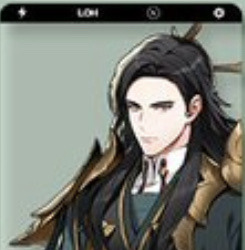






#lord of heroes#loh#lord of heroes far east trio#not even the trio it’s just ian and biryu in most of these 😭😭#poor aran#so we have some snippets of their official rendered art#some recruitment and A2 outfits#bday artwork#and that’s really it
19 notes
·
View notes
Photo
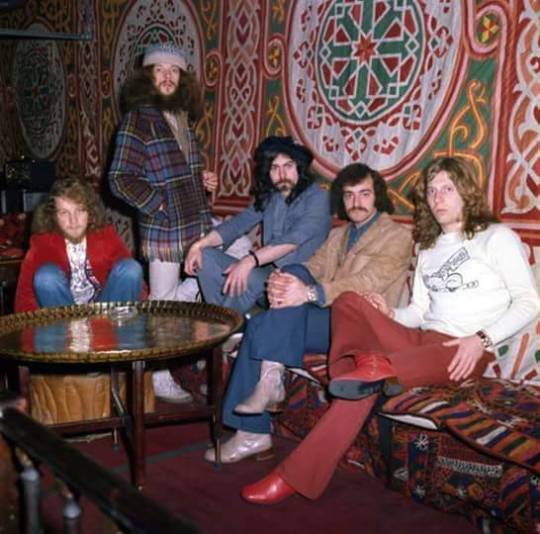
Jethro Tull, at Fillmore East. 1972
#Jethro Tull#Fillmore East#70's#70s#Ian Anderson#progressive rock#classic rock#fav#folk rock#classic#70's hard rock#UK
60 notes
·
View notes
Text
watched sweet east, actually terrible, Jacob was amazing but his characters death broke me as always when one of his characters gets hurt. anyways
Ian is king❤️❤️
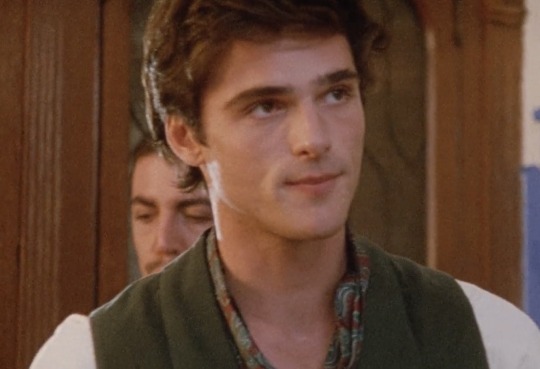
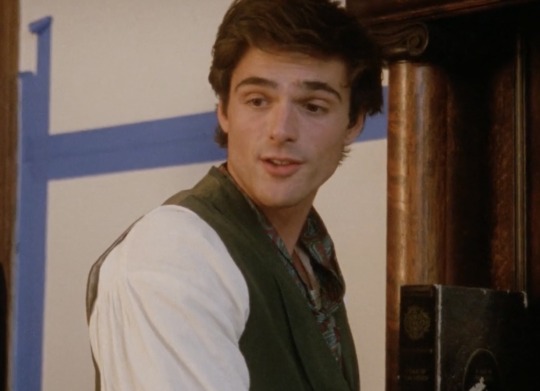

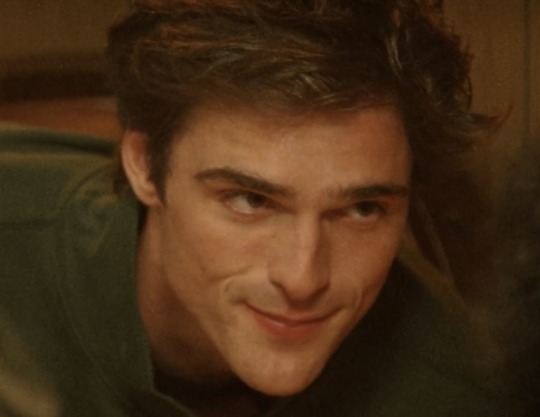
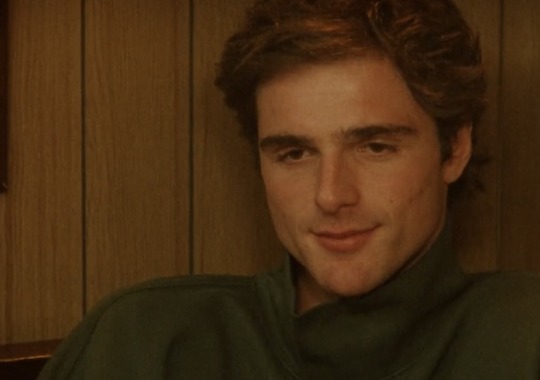
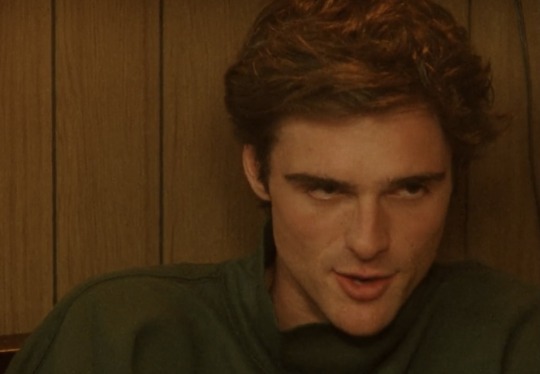

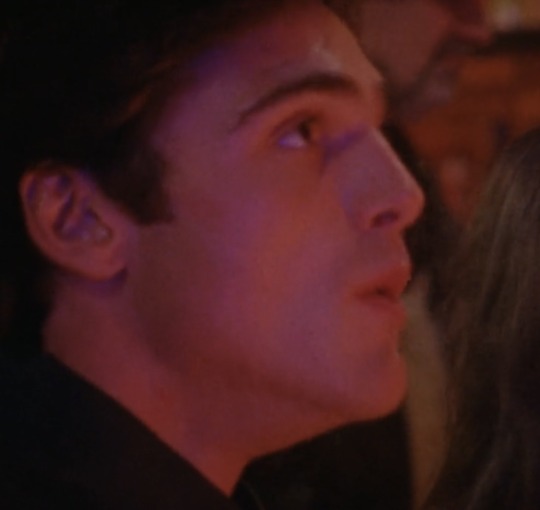

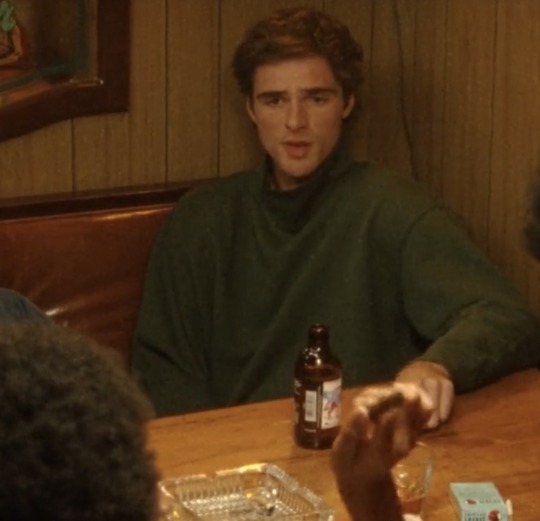
34 notes
·
View notes
Text
Head empty. Only Ted Raimi.
#ted raimi#im obsessed#i cant stop thinking about him#i need him to come to the east coast asap#ted raimi simp#xena warrior princess#joxer the mighty#travis hackett#the quarry#deadwax#ian ullman#red light#army of darkness#intruder 1989#horror movies
30 notes
·
View notes
Text
A customer just called and said he heard we were wiped off the map by hurricane Ian, and he just wanted to make sure his motel reservation was still good for this Friday.
#all tourists are bastards#the customer is always wrong#for the record we're fine#the hurricane missed the keys entirely#key west got some heavy rain on the outermost edge of it#but Ian swept west of us before heading back east towards the Fort Meyers/Tampa coast
28 notes
·
View notes
Text
Kasabian – Webster Hall – November 14, 2023

Halfway into the North American tour in support of their seventh studio album, last year’s stellar The Alchemist’s Euphoria, English electronic-rock band Kasabian stopped off at Webster Hall on Tuesday night to put on a rowdy show.








Photos courtesy of Dana Distortion | distortionpix.com









#Bowery Presents#Chris Edwards#Dana Distortion#East Village#Ian Matthews#Kasabian#Live Music#Music#New York City#Photos#Sergio Pizzorno#The Alchemist’s Euphoria#Tim Carter#Webster Hall
6 notes
·
View notes
Text
Crimes That Shook Britain (East England)
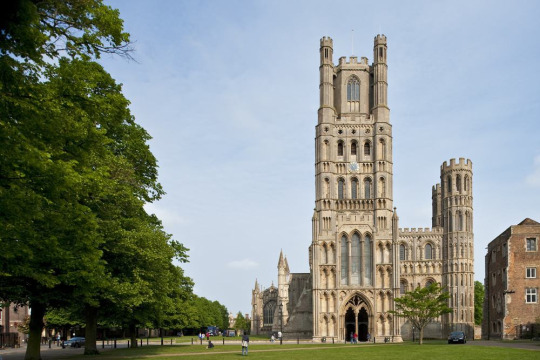
Joanna Dennehy
Joanna Dennehy grew up in a loving home. But, at 16, she left, got into drink and drugs and lived in a violent fantasy world.
In March 2013, she launched a two-week killing spree, murdering men ‘for fun’. She lured Lukasz Slaboszewski, 31, to her Peterborough flat with suggestive texts, stabbed him and dumped his body.
Ten days on, she stabbed housemate, John Chapman, 56. Next, she killed her landlord Kevin Lee, 48. He was found in a ditch in a sequined dress.
Days later, she stabbed two men at random. Both survived. When arrested, Dennehy laughed, danced around the police station, and was later diagnosed with psychopathic antisocial personality disorder.
Dennehy, 31, pleaded guilty to three counts of murder, and two of attempted murder. She received a whole-life sentence.

Suffolk Strangler
Late in 2006, sex workers began disappearing - Tania Nicol, Gemma Adams, Annell Alderton, Annette Nicholls and Paula Clennell - after being picked up from the Ipswich red-light district.
Their naked bodies were found in remote locations.
Police tracked the murders back to Steve Wright. He’d drop his partner at work, then trawl the red-light district for small, slight prostitutes. After having sex with them, he’d kill them, dump their bodies, then go home, get changed, and go to work.
Convicted of the five murders, he got a whole-life sentence. His repeated appeals have been unsuccessful.

Tony Martin
In August 1999, Fred Barras, 16, and Brendon Fearon, 28, broke into Tony Martin’s Norfolk property.
Martin had trouble with burglars before. Arming himself with an unlicensed pump-action shotgun, he fired at the intruders as they fled.
Both had leg wounds, but Barras was shot in the back and died.
Martin was tried for murder but claimed self-defense. He was convicted, jailed for life. The case provoked debate over rights to defend property.
On appeal, Martin’s defense claimed he was suffering paranoia, particularly regarding burglars, when he killed Barras.
Martin’s conviction was reduced to manslaughter on the grounds of diminished responsibility and he was released after three years.
Soham Murders
The photo made headlines worldwide in August 2002.
Smiling best friends, Holly Wells and Jessica Chapman, both 10, in matching Man Utd football shirts.
Shortly after the photo was taken, the schoolgirls had left a family barbecue to buy sweets and vanished.
Their bodies were found nearly two weeks later in a ditch near RAF Lakenheath, 12 miles from their homes in Soham.
School caretaker Ian Huntley, who’d given several TV interviews during the search, was arrested.
He’d lured the girls into his house as they walked by and murdered them, before disposing of their bodies.
He was jailed for life.
His girlfriend - the girls’ teaching assistant Maxine Carr - was jailed for perverting the course of justice after initially giving Huntley a false alibi. She was released in 2004.

Murder of Emma Ward
Emma Ward’s family contacted police in May 2010, concerned for her safety. Her husband Nicky Ward claimed that weeks earlier she’d left him a note saying she was leaving him for another man - but there was no trace of the note.
Detectives found rubbish bags in the garden containing Emma’s passports, birth certificate and driving license. Ward was arrested.
Forensics found bloodstains in the bedroom, on the landing, on a picture frame and pillowcase. Traces of Emma’s blood were in the bathroom, and on an electric saw.
Ward was charged with murdering his wife in the bedroom of their Norfolk home because she was about to leave him, and dismembering her body in the bath with a chainsaw.
Her remains have never been found, but Ward was convicted, jailed for life.

Jeremy Bamber
At 3:30am on 7 August 1985, Jeremy Bamber called the police claiming his father had phoned, said his sister Sheila had ‘gone beserk’ with his rifle.
At his adoptive parents’ house in Malden, police found Bamber’s parents Neville and June, plus Sheila and her twins Nicholas and Daniel, 6, shot dead, the gun by Sheila’s side. Murder-suicide?
But Bamber’s girlfriend told police he’d confessed plans to hire a hitman to kill the family.
And a blood-flecked silencer was found at the house.
Bamber was convicted of killing his family to inherit their fortune. He received a whole-life sentence, but still protests his innocence.

#crimes that shook britain#true crime#soham murders#tony martin#suffolk strangler#britain#east of england#Emma Ward#Joana Dennehy#the crime crypt#Ian Huntley#Maxine Carr#Murder#crime#true crime junkie
6 notes
·
View notes
Text
"A rising tide lifts all the boats," said President John F. Kennedy. Never was this truer than between 1500 and 1800, when for three centuries Eastern and Western social development both floated upward (Figure 9.1).
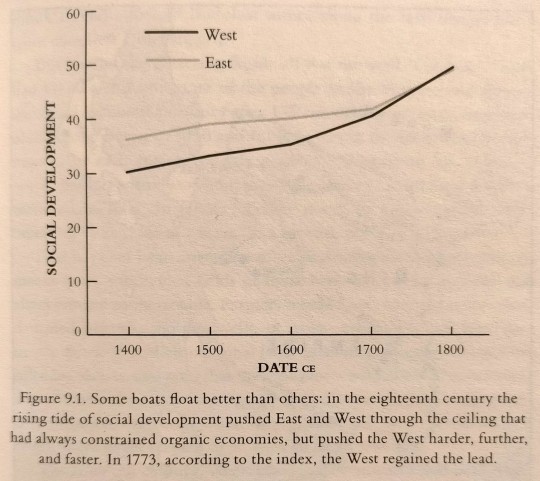
"Why the West Rules – For Now: The patterns of history and what they reveal about the future" - Ian Morris
#book quotes#why the west rules – for now#ian morris#nonfiction#rising tides#john f kennedy#jfk#passage of time#social development#the east#the west#16th century#17th century#18th century#improvement
3 notes
·
View notes
Text
Ian Moyer on Democedes’ ”Golden Fetters” (Herodotus III 125, 129-137): experts and cultural exchanges in palace and market economies of Antiquity
Ian Moyer “ Golden Fetters and Economies of Cultural Exchange”, 2006, Journal of Ancient Near Eastern Religions 6 (abstract and preliminaries)
“Abstract
In W. Burkert’s Orientalizing Revolution, itinerant craftsmen and other specialists moving from East to West are the primary vector for the movement of Near Eastern ideas and practices to the Greek world in the archaic period. In this model, the incentive for movement is a choice between western economic freedom and the despotism of eastern palace-centered economies. When set in the context of theoretical debates over the ancient economy, and particularly the important studies of C. Grottanelli and C. Zaccagnini on the mobility of specialists, Burkert’s model appears to accept that modern divisions between eastern and western economies were also salient for ancient actors. This supposition is tested through a reexamination of Herodotus’ story of the Greek doctor Democedes and the golden fetters awarded to him by Darius (Histories 3.125, 129-137). Though Herodotus uses the symbol of “golden fetters” as a focal point for the construction of cultural difference, parallel Greek and Egyptian evidence of specialists in royal service suggests that such gifts could also function as cross-cultural prestige items, and that the royal economies in which they circulated could facilitate and even stimulate the adoption and dissemination of notionally foreign ideas and practices.
Preliminaries
Herodotus’ ethnography of Egypt encapsulates a paradox that plagues theories of cultural exchange. In a famous passage, the Greek historian wrote that the Egyptians are entirely opposite to other people in their manners and customs, and yet he also claimed that many Greek practices and ideas, especially in the realm of religion, came from Egypt.2 On the one hand, his oppositional definition draws boundaries around Egyptian culture, and on the other hand the boundaries are porous and their content transferable. Similar ambiguities permeate the unreflective uses of inherited anthropological categories such as “culture” in the study of contacts between the Archaic Greek world and adjacent regions surrounding the Eastern Mediterranean. As J. Hall has observed, concepts of a universal, transnational culture (or civilisation) spreading out from the Near East are found alongside descriptions of interaction and exchange between bounded, plural cultures.3 Though much work over the last 3 decades has gathered evidence of connections between Greece, the Near East, and Egypt, the processes of cultural interchange have received less attention than they merit. In particular, models of the economies in which culture contact and exchange took place—that is, the systems of transactional relationships in which people, goods, practices, and ideas moved—still remain relatively underdeveloped.4
Perhaps the best known model for interaction with the Near East in the archaic period of Greek history is outlined in The Orientalizing Revolution by the eminent historian of religion, Walter Burkert. His account includes contact and exchange between Greece and the Orient in a number of modes, including trade and military expansion, but the dominant explanation, indeed the one framing the structure of his work, is the movement of various specialists, whether in sacred or profane technologies, from East to West. The aim of Burkert’s work is to correct earlier historiographical tendencies to view Greek culture in isolation, and yet the way he envisions the process of cultural interchange in the early archaic period reifies some of the divisions he seeks to break down. In Burkert’s description of cultural vectors, the force that drew Eastern specialists to the Greek world was rational individual choice between western economic freedom, and the despotism of the East:
To sum up: For craftsmen of the East, at least the chance for free movement had existed for some time, since the influence of the despots was limited in extent. In the West, this mobility was fully developed by the orientalizing period. It can be presumed that precisely this factor could act as a strong incentive for emigration to the freer West.... Even if free enterprise was an invention of the early orientalizing period, the “orientals” were certainly involved too.5
Just as the direction of flow in Herodotus’ view of Greek debts to Egypt is determined by the antiquity and conservatism of the Egyptians and the youth and receptivity of the Greeks,6 Burkert organizes the economic forces involved in his model of mobility along the lines of an East-West divide.7
I propose briefly to reexamine this model of migration and the distinctions it makes between East and West against the background of its economic assumptions, and through a familiar tale from Herodotus. The story of the Greek doctor Democedes of Croton, who received from Darius a pair of “golden fetters” while serving involuntarily at the Persian king’s court has been used to illustrate the tension between the freedom of the itinerant specialist and the tyranny of Near Eastern economies in which craftsmen were controlled by the palace.8 Parallels from Greek and Egyptian sources, however, suggest that the “fetters” need not have had the despotic significance Herodotus assigned them. These examples reveal circuits of migration tied to the historical conditions and ideologies of palace economies, thus situating the model of craftsmen moving east to west in the context of other economies in which contact and exchange took place. My purpose in this is to ask whether the distinction between eastern and western economic patterns was as salient a factor in motivating the movement of specialists as Burkert’ s model suggests, or whether this model accepts too easily a Herodotean view and certain metanarratives inherited from theories of the ancient economy.”
The whole article can be found on https://href.li/?https://www.academia.edu/475659/Golden_Fetters_and_Economies_of_Cultural_Exchange
This is another very interesting article of Ian Moyer, which has as subjects a number of very important questions on the history of Antiquity: the interactions between Greece and Near Eact during the archaic and early Classical periods, the vectors of this interaction, the role of itinerant specialists and craftsmen in the cultural exchanges in Antiquity, and above all the nature of the economies of the ancient Near Eastern monarchies and of the Greek city-states and their relations with the political structures of these polities.
My remarks on this article are that, first of all, the last decades there is a tendency to overestimate the Near Eastern influence on the development of the ancient Greek civilization, perhaps as a reaction to the previously dominant view, according to which Greece was essentially isolated from the Near East. However, I think that the truth is that, although the Greeks borrowed important things from the Near East, the ancient Greek civilization had since its beginning its own particular identiy, character, and dynamic of development, and of course its own characteristic major contributions and breakthroughs.
Secondly, it seems to me that Moyer’s criticism of Burkert’s model about the movement of specialists and craftsmen from the East to the West as anachronistic is rather justified and, moreover, I suspect that perhaps Burkert overestimates the extent and importance of this movement.
Thirdly, I think that Moyer tends to overlook somehow the particularity of the situation of Democedes and to read in Herodotus’ story about him more than what there is in the text. Democedes was not a typical itinerary specialist coming to offer his services to the Great King of Persia, usually after invitation: according to Herodotus, Democedes had gone to Susa as a captive after the execution of his former employer Polycrates of Samos by the Persians, and it is in this particular context that Darius’ gift of “golden fetters” must be understood. Herodotus presents Darius’ gift as an expression of royal favor and gratitude toward Democedes for his medical services, but also as a reminder of his status as a captive. In all this there is of course a depiction of Darius’ absolute power, which can raise someone from misery but also, conversely, annihilate the recipient of this favor, if the King is displeased with him, and an implicit comparison with the Greek political structures in which (with the exception of tyranny) no individual had such a power over free people. But I don’t see this story as an illustration of the differences in the situation of the various experts in the economic models of “free entreprise” and “palace economy’, because, as I said before, Democedes was not a typical specialist working for Darius, but a captive. Moreover, it is not uncontroversial that the economies of the developed ancient Greek city-states, although for sure in a large part market economies, were systems of “free entreprise” in the modern sense of the term.
More particularly concerning Herodotus, although it is true that he shows the role of the market in the life of the Greek city-states (see above all 1.153 with the description of the Greeks by Cyrus the Great of Persia) and the role of royal power in the circulation and distribution of resources and wealth in the Persian Empire, it would be problematic to make of him some kind of preacher of the “free entreprise” in the sense that this term has today.
Now, despite my remarks about the particularity of the situation of Democedes in Herodotus’ story, I believe also that the traditional view that entering the service of the Great King or of other monarchs with absolute power meant not only advantages, but also a loss of personal freedom, and that the gifts of the King were expressions of an unequal relation and means to tie even more their recipient as subordinate to his royal benefactor is largely correct, as Moyer himself shows when he presents the role of the royal gifts in the Achaemenid court.
Another remark that I have is that more generally Moyer’s views on Herodotus’ ethnography seem somehow unsympathetic in this article. For instance, when Moyer writes that... the direction of flow in Herodotus’ view of Greek debts to Egypt is determined by the antiquity and conservatism of the Egyptians and the youth and receptivity of the Greeks , to attribute immediately afterwards the flaws of Burkert’s model to a mentality similar to that of Herodotus in the previous excerpt, it seems that he rather reads Herodotus through the lens of the modern critical to Orientalism postcolonial theory. But I think that this reading is anachronistic, because first of all Herodotus in general admires Egypt and avoids comparisons which would show the Egyptians as culturally inferior to the Greeks, secondly because “antiquity and conservatism” were not seen by the ancients as something necessarily worse than “youth and receptivity” and perpetual change: in fact one can find in the ancient Greek literature several passages in which the conservatism and (supposed) immutability of ancient Egypt are seen with great admiration.
These critical remarks and disagreements from my part do not mean of course that I deny that Ian Moyer’s article on Democedes’ “golden fetters” is important and thought-provoking.
2 notes
·
View notes